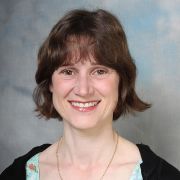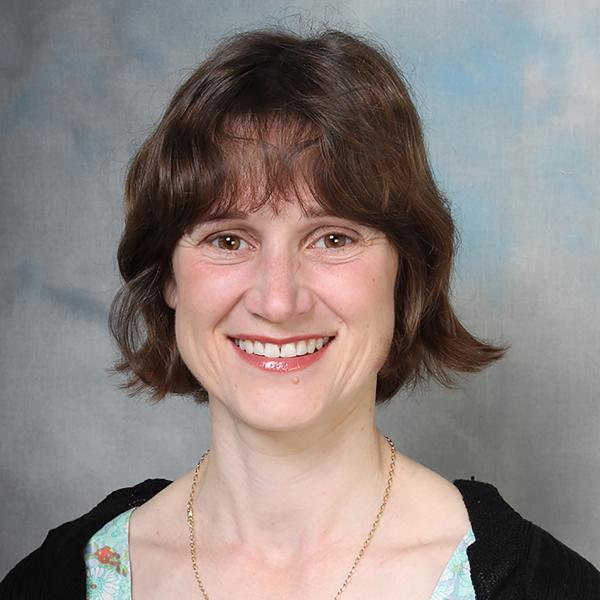Dr Jennifer A. Burnham
School of Mathematical and Physical Sciences
School Programmes and Regulations Lead
Senior University Teacher


Full contact details
School of Mathematical and Physical Sciences
Dainton Building
13 Brook Hill
Sheffield
S3 7HF
- Profile
-
I love teaching and have been a proud education specialist at the University of Sheffield since 2005. I have been involved in most aspects of teaching including pastoral support, lecturing, tutorials, workshops, laboratory teaching, and project supervision in both inorganic chemistry and chemistry education. My innovations and initiatives championing the potential of students have included introducing guided-inquiry in the lab, skills-development project work, green chemistry and sustainability practical work, and a curriculum review resulting in Programme Learning Outcomes that are now embedded in all Sheffield Chemistry’s UG and PGT programmes. I retain an interest in inorganic chemistry and enthusiastically advocate for boron as the best element in the periodic table to my students and to anyone else who will listen.
My work with colleagues has included Faculty and University committee work, I am an external examiner for the University of South Wales and University of East Anglia, and the education specialist on the OxICFM CDT advisory board. I have drawn on my experience to encourage, support and mentor other education-focussed colleagues. I set up a Faculty Teaching Network in 2012 and have led the Royal Society of Chemistry HE Chemistry Teaching Network since 2015. I am an enthusiastic member of the HE chemistry education community, a regular attendee at the annual Variety in Chemistry Higher Education-Physics Higher Education Conference and the current chair of the RSC Higher Education interest Group.
I firmly believe that students, and those teaching them, are awesome!
Awards
- Senate Award for Excellence in Learning and Teaching (2013)
- University of Sheffield Education Awards (2023) Highly Commended in the category of Leadership in Education
- Qualifications
-
Professional Qualifications & Memberships
- PFHEA (2021), SFHEA (2016)
- MEd in Teaching and Learning in Higher Education (2012)
- MRSC
- CChem
- Publications
-
Journal articles
- Mapping the campus learning landscape. Pedagogy, Culture and Society, 30(2), 149-167. View this article in WRRO


- Skills for success : student-focused, chemistry-based, skills-developing, open-ended project work. Journal of Chemical Education, 97(2), 344-350.


- Combining sustainable synthesis of a versatile ruthenium dihydride complex with structure determination using group theory and spectroscopy. Journal of Chemical Education, 94(7), 928-931. View this article in WRRO


- The Impact of a Teaching Specialist in a Research Led University. Practice and Evidence of Scholarship of Teaching and Learning in Higher Education, 11(1), 23-32. View this article in WRRO


- Opportunistic use of students for solving laboratory problems: Twelve heads are better than one. New Directions, 9(1), 42-48.


- Development of the Chemistry of Indium in Formal Oxidation States Lower than +3. Chemical Reviews, 107(1), 2-45.


- mer-Triiodotripyridineindium(III). Acta Crystallographica Section C Crystal Structure Communications, 61(4), m200-m202.


- The structures of higher boron halides B8X12(X = F, Cl, Br and I) by gas-phase electron diffraction and ab initio calculations. Dalton Transactions(3), 607-607.


- New solid-state sensing materials for gaseous dimethylcadmium, di-iso-propyltelluride and dimethylmercury. Journal of Crystal Growth, 273(3-4), 340-346.


- Environmental considerations in the MOVPE growth of (Hg,Cd)Te. Journal of Crystal Growth, 272(1-4), 829-835.


- Some Novel Binuclear Group 13 Metal Tin Hydrides Formed in Ar Matrices Following the Codeposition of the Metal Vapor with SnH4. Chemistry – A European Journal, 10(22), 5836-5847.


- The Surprising Structures of B8F12 and B10F12. Angewandte Chemie International Edition, 42(5), 571-573.


- The structures of borane carbonyl compounds B4X6CO (X = F, Cl, Br and I) by gas-phase electron diffraction and ab initio calculationsElectronic supplementary information (ESI) available: least-squares correlation matrix for electron diffraction structure refinement for B(BF2)3CO; tables of geometric parameters for B4X6CO and B2X4 (X = F, Cl, Br and I). See http://www.rsc.org/suppdata/dt/b2/b207192d/. Journal of the Chemical Society, Dalton Transactions(22), 4162-4167.


- Studies on BCl and on the exchange reaction of BCl3 with polyboron fluorides. Polyhedron, 21(5-6), 543-548.


- Dicarbonylbis(1,4-difluoro-2,3,5,6-tetramethyl-1,4-diboracyclohexa-2,5-diene)molybdenum. Acta Crystallographica Section E Structure Reports Online, 57(10), m419-m420.


- Synthesis and structures of carbonyl adducts of the boranes B(BX2)3 (X = F, Cl). Chemical Communications(23), 2367-2368.


- Development of three higher education professional learning networks in response to COVID-19: a case study. International Journal for Academic Development. View this article in WRRO


Book chapters
- Social and Informal Learning Spaces and Inclusion (pp. 157-174). Facet


- Developing student expertise in scientific inquiry In Seery MK & McDonnell C (Ed.), Teaching Chemistry in Higher Education : A Festschrift in Honour of Professor Tina Overton (pp. 391-404). Creathach Press View this article in WRRO


Preprints
- Mapping the campus learning landscape. Pedagogy, Culture and Society, 30(2), 149-167. View this article in WRRO
- Teaching interests
-
Chemistry Laboratory; Main Group Chemistry; Professionals Skills Development; Professional Learning Networks for Teaching Specialists.
- Teaching activities
-
Dr Jenny Burnham is a teaching specialist with a research background in main group chemistry. She delivers lectures, tutorials, workshops, skills-based project work, and laboratory classes, workshops, and runs Level 3 and Level 4 projects in inorganic chemistry and chemistry education.
Undergraduate and postgraduate taught modules
- Level 2 Main Group Chemistry
This lecture segment explores advanced main group chemistry including element-element multiple bonds, organometallic compounds of groups 1 and 2, and clusters in the main group. - Level 3 Semester 1 Laboratory
The Level 3 advanced chemistry laboratory covers the laboratory components of CHM3005, CHM3009, CHM3015. Students complete two two-day laboratory investigations in each module, learning the skills required to undertake air-sensitive and contaminant-sensitive synthesis and preparation, advanced chemical analysis and applying their knowledge in advanced analytical or theoretical chemistry investigations. - Level 3 Chemistry Laboratory Project
Students work in small groups to complete an extended lab project in an area of chemistry of their choice. These have included repurposing plastic waste for contaminant removal, exploring the effectiveness of different catalytic methods of carbon-carbon bond forming, performing single crystal crystal-structure analysis, and computational modelling of chemical processes.
- Level 3 Skills for Success Project work (course designer)
Skills for success is based on the philosophy that students should be able to customise their degree in order to develop the particular skills they need for their future. Students apply for their choice of project, complete the project itself, and then reflect on their experiences in order to solidify their learning. Previous project work has included gaining work experience in the department, debating philosophical issues from chemistry, researching a particular molecule, writing and hosting a quiz show, and experimenting in the kitchen.- CHM455 Academic Integrity workshop
Students work with groups of peers in a combined MSc workshop learning about and applying the principles of academic integrity, and writing a code of conduct for an MSc student.
Support Teaching:
- Personal tutor: Undergraduate chemistry.
- Tutorials: Level 1 General Chemistry.
- Literature Review: Level 3, topics in main group chemistry and chemistry education
Laboratory Teaching:
- Level 1 Laboratories
- Level 2 Laboratories
- Level 3 Laboratories
- Level 2 Main Group Chemistry
